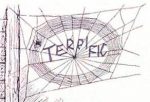I began a post in 2013 by recognizing something that David Deutsch said in a TED talk in 2005. I have referred back to it many times since, and here I will do it again. But this time I would like to present it more completely. It’s a beautiful articulation of something that’s just […]
|
|||||
|
First, I would like to apologize for neglecting Mathematics Rising in recent months. Changes to the classes I’ve been teaching at UT Dallas, (that were necessitated by Covid-19) consumed so much of my time that it became difficult for me to do much more than teach my classes and take care of my family. […] We all generally know the meaning of abstraction. We all have some opinion, for example, about the value of abstract painting. And I’ve heard from many that mathematics is too abstract to be understood or even interesting. (But I must admit, it is exactly this about mathematics that keeps me so captivated). An abstraction is […] 
Deciphering the principles of self-organizing systems is often at the heart of new ideas in biology, including neurobiology. A complex, self-organizing system contains a large number of elements that have predictable, local interactions with each other, but these local interactions create global properties that cannot be predicted from even the most well-understood local events. This […] I have made the argument on more than one occasion that a refreshed look at mathematics may help illuminate the relationship between our experience of the physical and our experience of the thoughtful. Mathematics is a discipline characterized by complex relations among abstract things but, as has been explored from many directions, the action of […] 
The slow and steady march toward a more and more precise definition of what we mean by information inevitably begins with Claude Shannon. In 1948 Shannon published The Mathematical Theory of Communication in Bell Labs’ technical journal. Shannon found that transmitted messages could be encoded with just two bursts of voltage – an on burst […] Not too long ago I wrote about entropy, and what has come to be known as Maxwell’s demon – a hypothetical creature, invented in 1871 by James Clark Maxwell. The creature was the product of a thought experiment meant to explore the possibility of violating the second law of thermodynamics using information to impede entropy […] I just listened to a talk given by Virginia Chaitin that can be found on academia.edu. The title of the talk is A philosophical perspective on a metatheory of biological evolution. In it she outlines Gregory Chaitin’s work on metabiology, which has been the subject of some of my previous posts – here, here, and […] A recent issue of New Scientist featured an article by Kate Douglas with the provocative title Nature’s brain: A radical new view of evolution. The limits of our current understanding of evolution, and the alternative view discussed in the article, are summarized in this excerpt: Any process built purely on random changes has a lot […] Looking through some blog sites that I once frequented (but have recently neglected) I saw that John Horgan’s Cross Check had a piece on George Johnson’s book Fire in the Mind: Science, Faith, and the Search for Order. This quickly caught my attention because Horgan and Johnson figured prominently in my mind in the late […] |
|||||
|
Copyright © 2025 Mathematics Rising - All Rights Reserved Powered by WordPress & Atahualpa |
|||||


Recent Comments